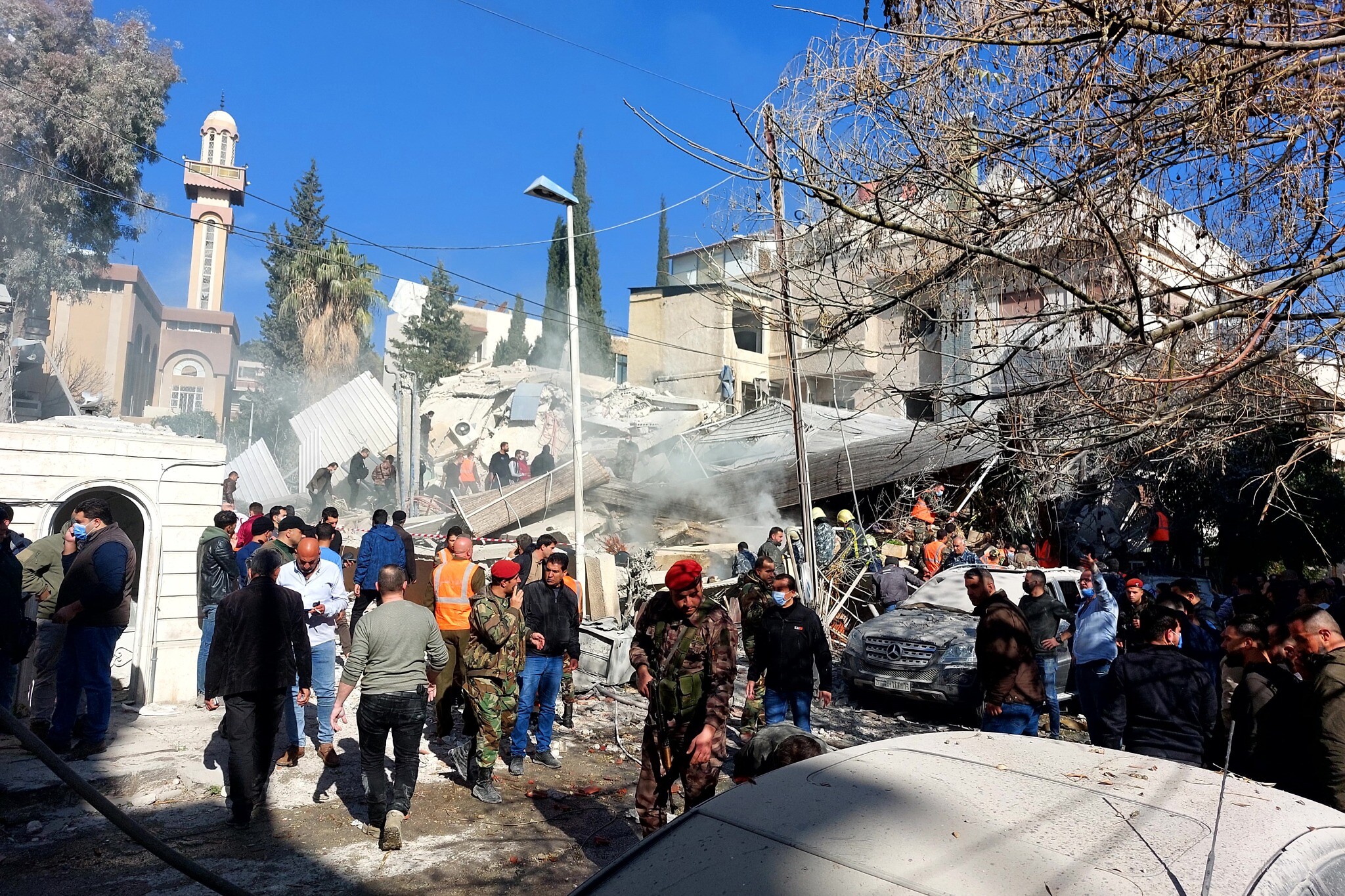



An alleged Israeli strike on Damascus killed the Iranian Revolutionary Guards’ intelligence chief for Syria and his deputy as well as two other Guards members on Saturday, Iranian media said.
“The Revolutionary Guards’ Syria intel chief, his deputy and two other Guards members were martyred in the attack on Syria by Israel,” Iran’s Mehr news agency said, quoting an informed but unnamed source.
Local reports in Syria said that at least five people were killed in the strike.
An official with an Iran-backed group in the Middle East told The Associated Press that the building was used by Revolutionary Guard officials, adding that the “Israeli missiles” destroyed the whole building.
Syrian state media also blamed the strike on “an Israeli aggression.”
A security source, part of a network of groups close to Syria’s government and its major ally Iran, said the multi-story building was used by Iranian advisers supporting Syrian President Bashar al-Assad’s government, and that it was entirely flattened by “precision-targeted Israeli missiles.”
There was no confirmation from Israel, which rarely comments on alleged strikes in Syria.
A spokesman for the Palestinian Islamic Jihad said that no members of the terror group were wounded in the strike, following reports that some were at the bombed-out building. Unsourced Hebrew and Arabic media reports had initially said that PIJ deputy Akram al-Ajouri had also been killed in the strike.
The strike was carried out in the Mazzeh neighborhood, a high-security zone that is home to the United Nations’ headquarters and embassies.
A grocer near the scene of the strike said he heard five consecutive explosions at about 10:15 a.m., adding that he later witnessed the bodies of a man and a woman being taken away as well as three wounded people.
“The shop shook. I stayed inside for few seconds then went out and saw the smoke billowing from behind the mosque,” said the man, who asked that his name not be used for security reasons.
Last month, senior IRGC officer Brig. Gen. Razi Mousavi was killed in an alleged Israeli airstrike in Damascus, drawing Iranian threats of retaliatory action.
Recent weeks have seen several alleged sorties carried out against sites in Syria as part of Israel’s ongoing efforts to prevent Iran from supplying arms to its proxy Hezbollah, which has stepped up attacks on northern Israel over the past several months amid the ongoing war in Gaza.
Defense Minister Yoav Gallant told his American counterpart Lloyd Austin on Thursday night that Israel was nearing a decision point on Lebanon and the conflict with Iran-backed Hezbollah.
Lebanese officials said Thursday that Hezbollah had rebuffed Washington’s initial proposal for stopping clashes with Israel, including pulling its fighters further from the border, but remained open to US diplomacy to avoid a ruinous war.
Gallant’s comments followed similar remarks by IDF Chief of Staff Herzi Halevi earlier this week, who said a war in the north in the coming months was becoming more likely.
Since October 8, a day after the deadly Hamas attacks on southern Israel, Hezbollah has engaged in cross-border fire on a near-daily basis, launching rockets, drones and missiles at northern Israel in a campaign it says is in support of Hamas.
The attacks forced most residents several kilometers from the border to evacuate. Israel has responded with its own regular strikes on Hezbollah targets, and has warned it will not be able to tolerate the terrorists’ continued presence on the border.
The Iran-backed terror group Hamas launched a massive onslaught on October 7, killing approximately 1,200 people in Israel and kidnapping 240, mostly civilians, amid horrendous acts of brutality and sexual assault.
In response, Israel vowed to eliminate Hamas, launching a wide-scale military campaign in Gaza aimed at destroying the group’s military and governance capabilities.
Iran, which supports Hamas both financially and militarily, has hailed the devastating October 7 attacks as a “success” but denied any direct involvement.



